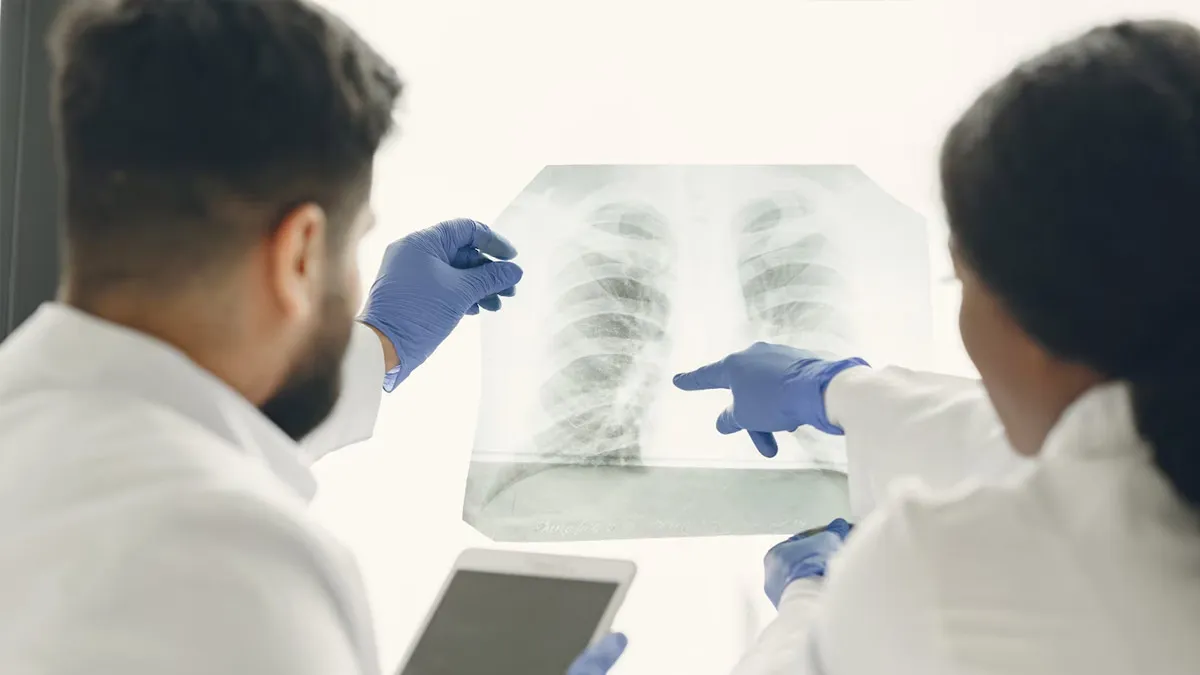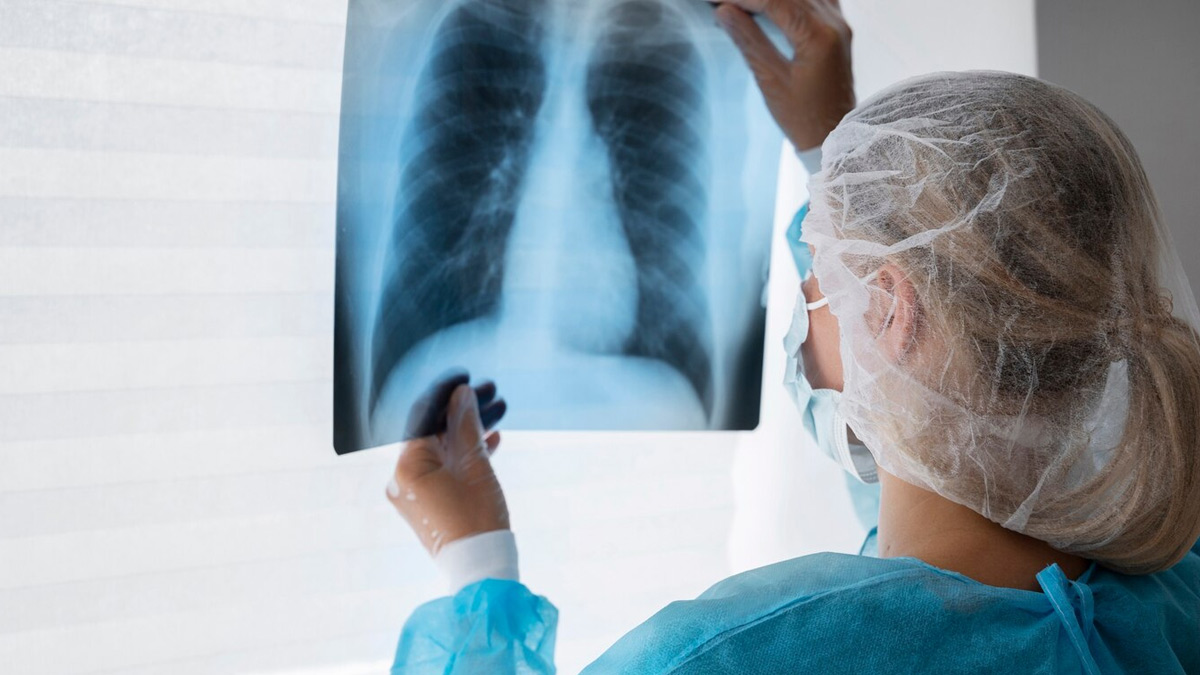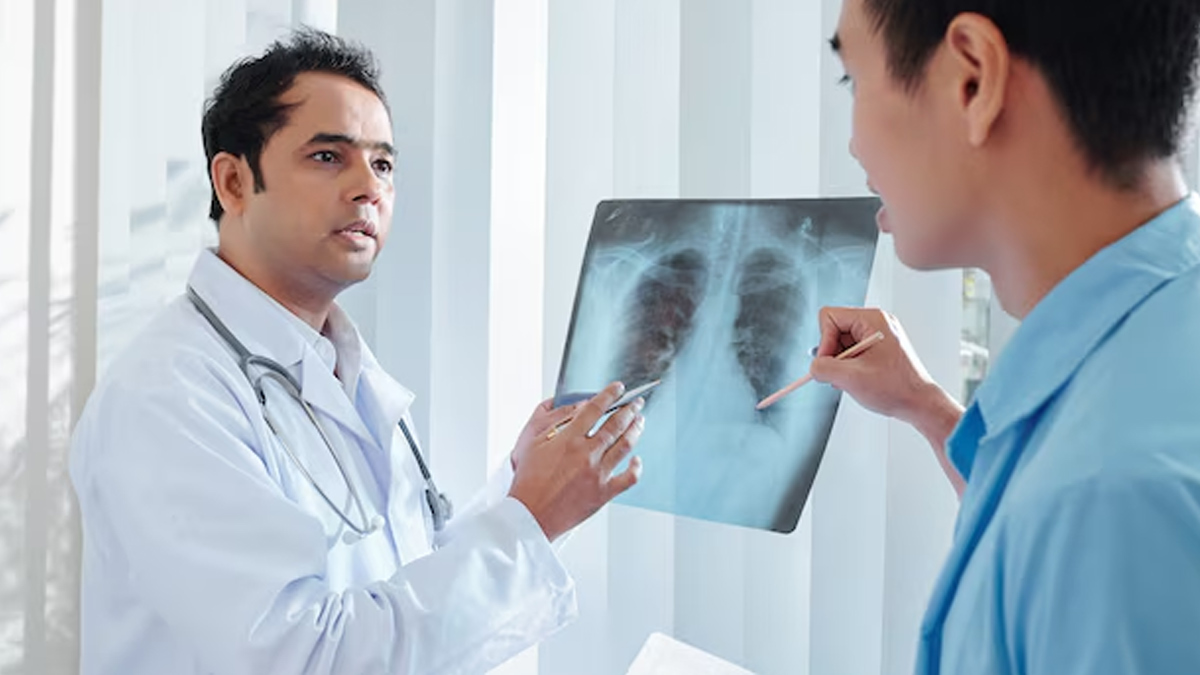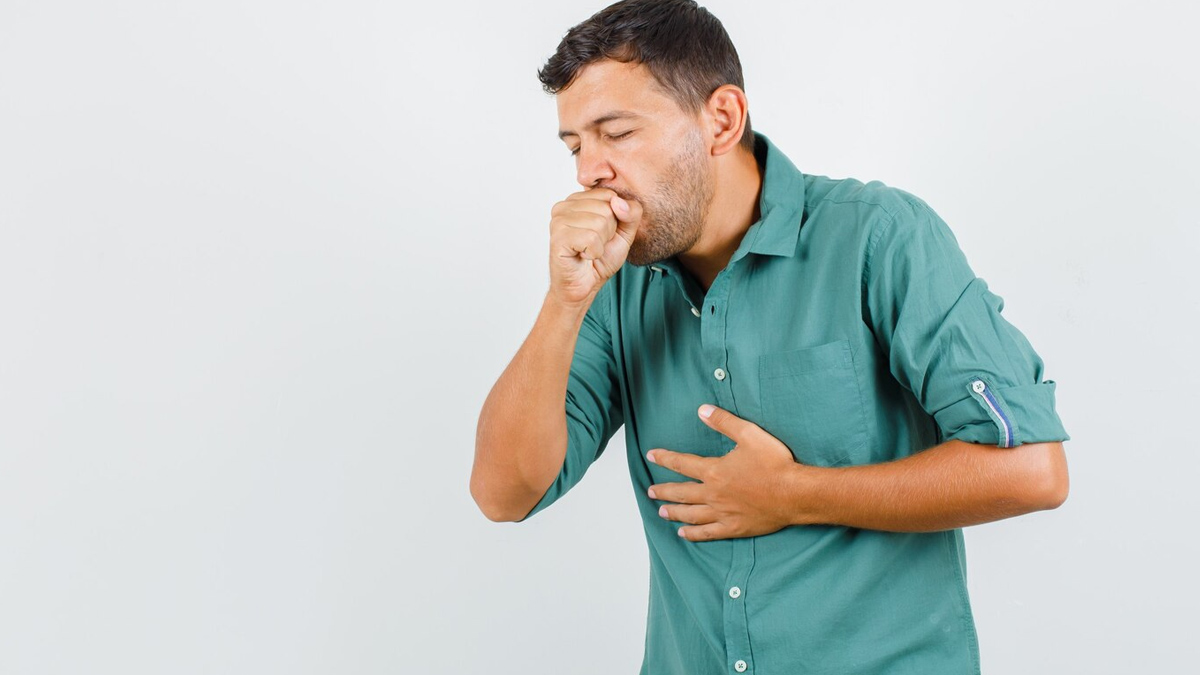
Pope Francis recently died at the age of 88 due to complications of double pneumonia, also called bilateral pneumonia. It is an infection of the lungs that occurs in both lungs at the same time.
Table of Content:-
Double pneumonia can become a serious threat, particularly to the elderly. Understanding the symptoms, dangers, and ways of prevention is the key to safeguarding our ageing loved ones. Dr Swapnil Khadake, Head of Critical Care Medicine, Fortis Hiranandani Hospital, Vashi, gives valuable insight into the reasons why older people are more susceptible.
What Is Double Pneumonia?

The World Health Organization (WHO) defines pneumonia as a form of acute respiratory infection that is most commonly caused by viruses or bacteria.
In 2017, pneumonia claimed the lives of more than 8.08 lakh children under the age of five, accounting for 15% of all deaths of children under 5 years.
Double pneumonia is a severe form of pneumonia that occurs when both lungs get infected simultaneously. In contrast to normal pneumonia, which tends to affect only one lung, double pneumonia is serious and can very quickly become complicated if not taken care of promptly.
Unfortunately, older adults are more at risk of this condition. It leads to overall inflammation in the lungs and hence causes difficulties in breathing, along with decreasing the oxygen in the body.
Why Are Older Adults More At Risk?

According to Dr Khadake, elderly individuals are especially susceptible to double pneumonia because of a number of reasons:
- Weak immune system: Age naturally weakens the body's capabilities to ward off infection.
- Chronic conditions: Diabetes, heart disease, or COPD make patients more susceptible.
- Decreased lung function: Lung capacity and effectiveness decrease with age, and it becomes more difficult to remove infections.
Also Read: Spike In Paediatric Pneumonia Cases In Bengaluru—Doctors Warn Of Rising Infections
Early Warning Signs To Look Out For
Caregivers must be alert and take action immediately if the following symptoms occur:
- Cough (with or without phlegm)
- Trouble breathing or fast breathing
- Fever or chills
- Chest pain, particularly when coughing or breathing
- Fatigue or unusual tiredness
- Mental confusion, especially in older people
- Bluish colour to lips, fingers, or nails (indicating low oxygen levels)
Preventive Measures For Older Adults

Prevention is the key to shielding elders from pneumonia. According to Dr Khadake, take the following measures:
- Vaccinations: Keep pneumonia (such as PCV13 and PPSV23) and flu shots annually up to date.
- Hygiene: Wash your hands often to avoid infection.
- Avoid exposure: Avoid being around people who are evidently unwell.
- Quit smoking: Smoking destroys lung tissue and lowers immunity.
- Healthy lifestyle: Consume a balanced diet, remain physically active, and control chronic diseases such as diabetes or hypertension well.
What Happens If Double Pneumonia Goes Untreated?
If double pneumonia is not treated in time, it may cause severe and life-threatening complications, including:
- Severe respiratory distress or failure
- Sepsis: A severe and life-threatening infection in the blood
- Permanent lung damage
- Death, particularly in people with weakened immunity or underlying health conditions
Conclusion
Double pneumonia is a dangerous disease, but with awareness, prevention, and early medical intervention, its dangers can be greatly minimised. Older adults and caregivers should take vaccinations seriously, practice good hygiene, and watch respiratory symptoms closely to protect health and well-being.
Also watch this video
How we keep this article up to date:
We work with experts and keep a close eye on the latest in health and wellness. Whenever there is a new research or helpful information, we update our articles with accurate and useful advice.
Current Version
